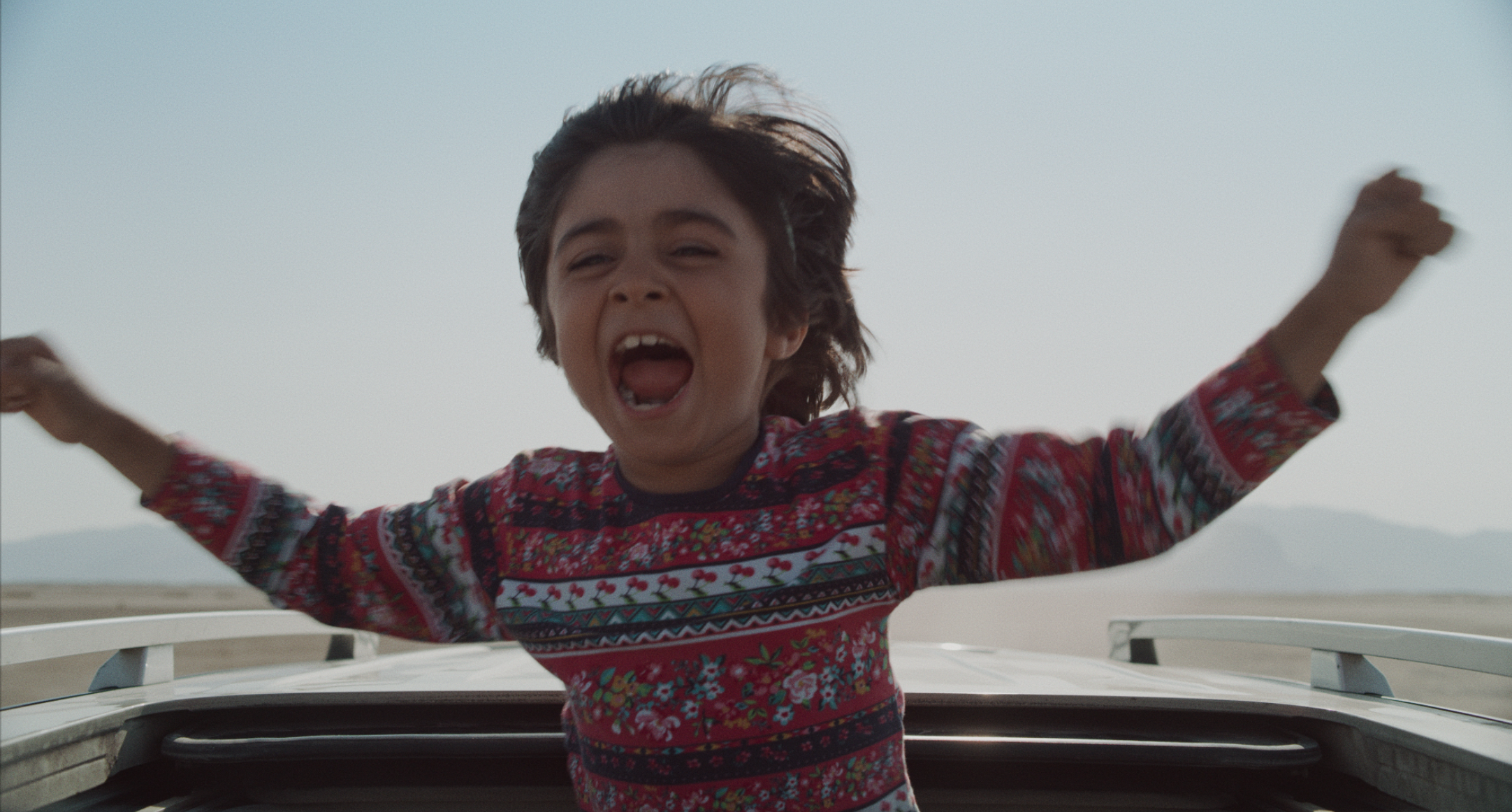If wacky Iranian family comedies are not the first thing you look for in streaming content, think again about Hit the Road (Jadde Khaki). A festival favorite since its premiere in the Cannes Directors Fortnight, it features ill-matched family members – a cranky older father, steely mother, 20-ish son and 6-year-old tyrant, plus a sick dog – taking a trip through the scenic deserts and mountains of northern Iran in writer-director Panah Panahi’s first film. Its greatest asset is the down-to-earth charm that reaches back into Iranian cinema, including lessons learned from père Jafar Panahi’s straightforward style and his focus on ordinary people and their problems. Among its festival wins are London BFI and Mar del Plata where it drove home with Best Film awards, and Red Sea’s special jury prize.
Shot with one car, four actors and some lunar backgrounds soulfully lensed by Amin Jafari, this is low-budget filmmaking at its most inventive. Even so, road movies tend to feel long, especially with a screaming, hyper-active child in the car, and there are some tedious moments along the way. But Panahi always finds a way to pull the viewer back into the story, which is a bit mysterious but seems like it’s going somewhere.
And indeed, though the atmosphere is flat-out funny for most of the film, you can feel the screenplay veering off road and heading for a dramatic conclusion, one which gives everything a meaning in retrospect. It’s hard to say more without giving away key plot points, but to state the obvious, the family is not on a carefree vacation. That much is clear from the underlying tension in the car, the silly banter that keeps important things from being said, the fact that the elder son, who is driving, is practically silent. And the idea that they are being followed. They are heading for the mountains where a momentous rendezvous is going to tear this kooky but loving quartet apart, for reasons beyond their control that are only hinted at.
All the characters are sketched in bright primary colors, blended to give depth. Bearish Dad (Hasan Majuni) sprawls awkwardly in the back seat with his broken leg extended into the front of the car they have borrowed for their trip. Someone has drawn a piano keyboard on his cast and his younger son (Rayan Sarlak) plays a tune on it, which amusingly happens to coincide with Peyman Yazdanian’s score.
Despite her gray hair, Mom (Pantea Panahiha from Narges Abyar’s Breath) looks and acts like a modern free spirit, but behind her smile is a nagging worry that will dramatically explode in the film’s moving final scenes. As she calmly deals with her out-of-control son and the ailing dog in the back of the car, both of whom need frequent food and pee breaks, Panahiha invites us to identify her as the mom next door, and at the same time comes across as far more individualized than most women in Iranian films.
Her disgruntled husband is equally engaging, spitting out cynical and vulgar comments that are right on target. (Majuni, who is a theater director, played the eccentric lead in Mani Haghighi’s very offbeat Pig, and Haghighi’s work is quite a relevant comparison here.) Only in a late scene by a river, conversing with his elder son (Amin Simiar), do some paternal feelings emerge that were no doubt under the surface all the time.
In his first screen appearance, little Sarlak is a noise machine and a scene-stealer who one would dearly love to cast in “The Ransom of Red Chief”. In a memorable shot near the end, his exasperated Dad ties him bellowing to a tree in a Kiarostami-style extreme long shot, while his parents face up to the family’s future. The wildly conflicting emotions this scene engenders – anguish, curiosity, even relief that Red Chief isn’t going to interfere in the serious business at hand – is a signature of the film’s style and a road that Panahi will perhaps continue to explore in his future films.
Director, screenplay: Panah Panahi
Cast: Hassan Madjooni, Pantea Panahiha, Rayan Sarlak, Amin Simiar
Producers: Panah Panahi, Mastaneh Mohajer
Cinematography: Amin Jafari
Editing: Amir Etminan, Ashkan Mehri
Music: Peyman Yazdanian
Production companies:
World sales: Celluloid Dreams
Venue: Red Sea Film Festival (Red Sea competition)
In Farsi
93 minutes


